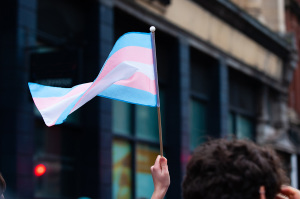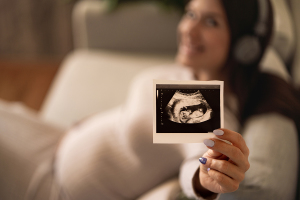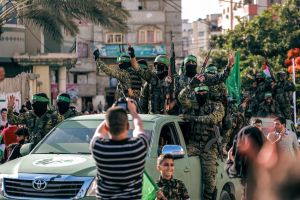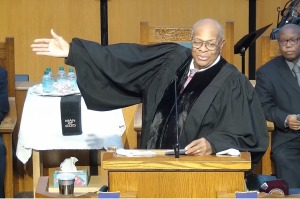Burmese Officials Order Closure of Church
Correction appended
DUBLIN (Compass Direct News) – Officials in Mergui Region in Burma, ordered a Baptist church to cease holding worship services after the pastor refused to wear an election campaign T-shirt supporting the military government's Union Solidarity and Development Party (USDP).
The election commission summoned 47-year-old Pastor Mang Tling of Dawdin village, Gangaw township, Mergui division on Nov. 9, two days after the election and ordered him to stop holding services and discontinue the church nursery program, the Chin Human Rights Organization (CHRO) reported Wednesday. The church is located close to the Chin state border.
The CHRO works against human rights abuses, including religious discrimination, for the Chin people, a minority group in Burma's northwest estimated to be 90 percent Christian.
Village headman U Than Chaung had given the pastor a campaign T-shirt to wear in support of the USDP, and when he refused to wear it, the headman filed a report with local authorities accusing him of persuading Christian voters to vote in favor of an opposing party, the National Unity Party (NUP).
Under Burmese law, religious leaders can be penalized for "engaging in politics," giving the pastor a solid legal reason to decline the T-shirt. The law also bans leaders of religious groups from voting in national elections, according to the CHRO, although lay members of those groups are able to vote.
"The election law is quite vague," a CHRO spokesman told Compass today. "One of the things we were watching out for during the election was to see if church elders or council members might be excluded from voting. But these people were able to vote. The law seems to apply only to pastors, monks and imams."
Officials interrogated Mang Tling in Gangaw until Sunday (Nov. 14), when he was allowed to return home.
Meantime, the USDP won the election amid widespread evidence of "advance" voting and other forms of voter manipulation throughout Burma.
Previously known as the Union Solidarity and Development Association, and before that the State Peace and Development Council, the USDP was formed by a ruling junta composed largely of army generals. The junta has ruled Burma without a constitution or parliament since 1998, although in 2008 they pushed through support for a new constitution that will take effect following this month's elections, according to the 2010 International Religious Freedom report released yesterday by the U.S. Department of State's Bureau of Democracy, Human Rights and Labor.
The new constitution forbids "abuse of religion for political purposes," the report stated. Election laws published in March also banned members of religious orders from voting for or joining political parties and reserved 25 percent of seats in the new parliament for members of the military.
The 2008 constitution "technically guarantees a degree of religious freedom. But then, it's Burma," a CHRO spokesman told Compass.
Voter Intimidation
The Chin National Party defeated the USDP in three electorates in Chin state despite reports of widespread voting anomalies, some of which were outlined in a CHRO press release on Nov. 7.
In Tedim township northern Chin state, for example, USDP agent Go Lun Mang went to the home of a local resident at 5 p.m. the day before the election and told the family that he had already voted on their behalf in favor of the USDP. He added that soldiers in a nearby camp were ready to arrest them if they complained.
On Nov. 5, the local government had already ordered village officials to instruct residents to vote for the USDP. On Nov. 7, the day of the election, USDP agents in campaign uniforms stood at the gate of the polling station in Tedim and asked voters if they intended to vote for the USDP. Those who said yes were allowed into the station, while those who said no were refused entrance.
USDP agents also warned Chin voters in Thantlang town that they should vote for the USDP "while the door was open" or they would regret it, Burma News International reported on Nov. 5.
David Mathieson, a senior researcher for Human Rights Watch (HRW), said the intimidation indicated that the junta and the USDP knew how unpopular they were.
Reports by the CHRO show a long history of discrimination against the majority Christian Chin, including the destruction of crosses and other Christian monuments, state-sponsored efforts to expand Buddhism, forced contributions of finance and labor to Buddhist construction projects, arrest and detention, torture and particularly harsh treatment of pastors. In addition, officials have refused construction for all new church building projects since 2003.
A report issued by HRW in January confirmed serious and ongoing abuses against Chin Christians.
One Chin pastor interviewed by HRW described how soldiers held him at gunpoint, forced him to pray in a Buddhist pagoda and told him that Burma was a Buddhist country where Christianity should not be practiced.
Correction: Friday, November 19, 2010:
An article on Friday, November 19, 2010, on a Baptist church in Burma that was ordered to cease holding worship services incorrectly reported that the officials who gave the order were from Chin state. Compass Direct News confirmed that the officials were from Mergui Region. The article also incorrectly reported that the National Unity Party defeated the USDP in three electorates (townships) within Chin state. It was the Chin National Party rather than the NUP that won.





























